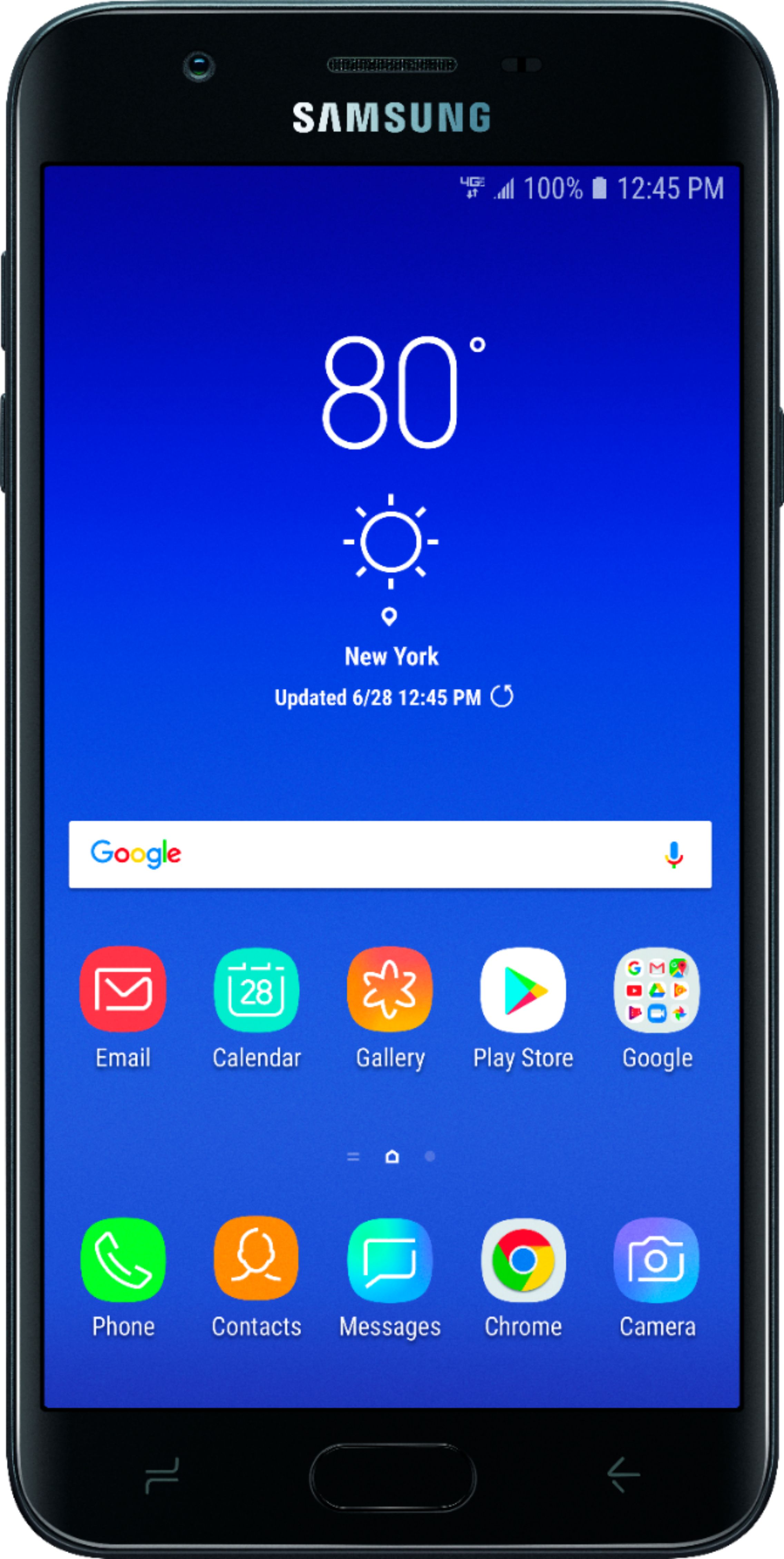Sponsored Links:The Samsung Galaxy J7 V or J727V (Verizon) manual is available now. The device is powered by Octa-core 2.2 GHz Cortex-A53 processor. It has 5.5 inches, IPS LCD capacitive touchscreen with 720 x 1280 pixels resolution. It's equipped with 16 GB internal memaory and 2 GB of RAM. Other main specs and features as follows:
Samsung J7 2nd Gen User Guide
Samsung Galaxy J7 2nd Gen Prepaid
- 151.4 x 76.2 x 8.6 mm, 167.3 g
- Android 7.0.1 (Nougat)
- Qualcomm MSM8953 Snapdragon 625
- Adreno 506
- microSD, up to 256 GB
- 8 MP, autofocus, LED flash
- 5 MP secondary camera
- Wi-Fi 802.11 a/b/g/n/ac
- Bluetooth 4.2
- Removable Li-Ion 3300 mAh battery
The Samsung Galaxy J7 V user manual
- The second-generation Galaxy J7 V hit shelves a little over a year ago. Three months later, even though Pie had already been officially released, it. Verizon Samsung Galaxy J7 V (2nd gen.
- The Samsung Galaxy J7 Prepaid lets you capture and edit 13 MP high-quality photos on a bold 5.5-inch display.1 Unlock your smartphone with facial recognition software and translate foreign text using Bixby Vision.2 Go unplugged for up to 38 hours at a time3 while enjoying the consistently fast speeds of the nation's largest and most reliable 4G LTE network.
Samsung GALAXY J7 V User Manual. Also See for GALAXY J7 V. Cell Phone Samsung Galaxy J7 User Manual (167 pages) Cell Phone Samsung Galaxy J7 Getting Started Manual. Legal information: View legal notices and other legal information, including your embedded Samsung legal information. Phone name: View and change your.
consist of 176 pages. It's available in english language. The manual provide detail reference information such as learn about special features like Side Speaker, tutorial setup device, Install the SIM Card on page 6, Install an Optional Memory Card, Install the Battery, Lock or Unlock phone, Factory Reset Protection on page 12, phone layout on page 16, Quick Settings on page 23, Use the Samsung Keyboard on page 30, Use Google Voice Typing, Activate Emergency Mode.| Samsung Galaxy J7 V Layout |
| Install an Optional Memory Card - Read on page 6 |
| Using Camera and Video - Read on Page 49 |
- Special Features
- Getting Started
- Learn About Your Device
- Apps
- Settings
- Connections
- Sounds and Vibration
- Notifications
- Display
- Wallpapers and Themes
- Device Maintenance
- Lock Screen and Security
- Accounts
- Accessibility
- Other Settings
- Getting Help
- Legal
Review Samsung Galaxy J7 V 2nd Gen
Read or download the Samsung Galaxy J7 V Manual in pd format (verizon) here:
Sponsored Links:
Related Manual:
| Android 8.0 Oreo |
| Samsung Exynos 7884 1,60 GHz [Number of cores: 8] |
| Li-Ion 3300 mAh |
| 13 Mpx |
Samsung Galaxy J7 V SM-J737V, Galaxy J7 V 2nd Gen manual user guide is a pdf file to discuss ways manuals for the Samsung Galaxy J7 V . In this document are contains instructions and explanations on everything from setting up the device for the first time for users who still didn’t understand about basic function of the phone.
Description
Other names: SM-J737V, Galaxy J7 V 2nd Gen, 153,3 x 76,2 x 8,7 mm, 181 g, Li-Ion 3300 mAh, Samsung Exynos 7884, IPS TFT 16M colors 720 x 1280 px (5.50″) 267 ppi, digital camera 13 Mpx, flash, mp3, radio, MMS, WiFi, GPS, LTE, microSD, microSDHC, microSDXC (do 400 GB), Android 8.0 Oreo, touchscreen,
Samsung SM-J737V, Samsung Galaxy J7 V 2nd Gen
Samsung Galaxy J7 V user manual
Samsung Galaxy J7 V user guide manual
Samsung Galaxy J7 V user manual pdf
Samsung Galaxy J7 V user manual guide
Samsung Galaxy J7 V owners manuals online
Samsung Galaxy J7 V user guides

User guide, Ръководство за потребителя, Brugervejledning, Guide de l’utilisateur, Guida per l utente, Gebruikershandleiding, Brukerhåndbok, Manual do Utilizador, Användarhandbok, 用户指南
Glossary
PDF - Stands for Portable Document Format. PDF is a file format designed to present documents consistently across multiple devices and platforms. It was developed by Adobe 1992 and has since become one of the most widely used formats for saving and exchanging documents.
A PDF file can store a wide variety of data, including formatted text, vector graphics, and raster images. It also contains page layout information, which defines the location of each item on the page, as well as the size and shape of the pages in the document. This information is all saved in a standard format, so the document looks the same, no matter what device or program is used to open it. For example, if you save a PDF on a Mac, it will appear the same way in Windows, Android, and iOS.
The PDF format also supports metadata, such as the document title, author, subject, and keywords. It can store embedded fonts so you do not need to have the appropriate fonts installed to the view the document correctly. PDF documents may also be encrypted so only authorized users can open them.
A file size is the measure of space a file takes on a storage medium such as a computer hard drive. File sizes can be measured in bytes (B), kilobytes (KB), megabytes (MB), gigabytes (GB), terabytes (TB), and beyond.